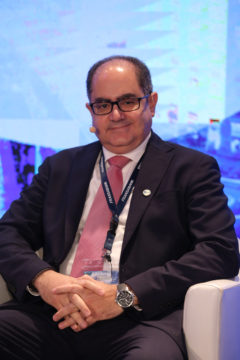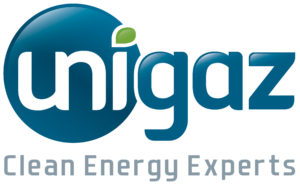The Voice of Khaldoun Dib, CEO of Unigaz
The Voice spoke with Khaldoun Dib, CEO of Unigaz Group in Lebanon to hear his thoughts and goals for Unigaz.

Could you tell us a little about your career path to get you here?
I started as a Mechanical Engineer in a gas company in Abu Dhabi then worked at two other companies in Lebanon until I reached Natgaz. I went from Project Engineer to Department Head to Division Head to General Manager.
I kept improving myself and investing in myself where the MBA supported me in understanding the globality of the challenge of being in this industry.
Seven years later, I started working at Unigaz International as CEO for the holding company. I never focused on climbing the organisational ladder. My focus was on exceeding the expectations of my role and responsibilities, building sincere relationships, both internally and externally, continuously learning, and taking on new challenges and responsibilities.
What are the main opportunities for Unigaz today?
Each country Unigaz operates in the Middle East has different requirements and thus different opportunities, whether it is Bulk Supply, Autogas or Gas to Power. Accordingly, we aim to offer several differentiated offerings to match the opportunities that arise in each market we operate in.
At Unigaz, we are always pushing ourselves to reach higher operation excellence in each country we operate in or willing to penetrate. Unigaz was the first company to import gas in Jordan. As for Saudi Arabia and Qatar, we are the market leader in the Network Design, Installation, and Maintenance of gas systems.
Are you planning to expand your operations?
Unigaz is always in an expansion mode where currently Unigaz covers most of the Middle East countries. However, we are now penetrating the African Market. Unigaz established its first operation in Nigeria and eventually in one of the East African countries.
Unigaz is always looking for new markets where it can add value to the gas industry.
What targets or expectations does Unigaz have for the upcoming five years?
Unigaz operates in six countries in the Middle East, where our main target is to have a higher integration between these countries. We also aim for higher operational excellence by digitalising our operations and implementing the latest LPG technology. We aim to expand into further three countries in Africa and the Middle East.
How do you see the future of the LPG market?
BioLPG will have a major role to play in the future especially in the developed markets. BioLPG will take a share of the market availability.
Moreover, in my perspective, the growth in the supply market will push the LPG to be used in power generation.
What are some of the most promising, high-growth opportunities in the global LPG market by segment and region?
One of the most promising opportunities for LPG is the increase in gas demand for cooking in Africa and some Asian countries.
However, the increasing use of LPG in many applications is another factor that will drive the LPG market growth. Two of the high growth applications of LPG are power generation and Autogas.
Which segments in the LPG market will grow at a faster pace and why?
BioLPG will grow at a faster pace due to the fact that production barriers are decreasing. The fuel can be used within a full range of existing LPG applications, from transport and commercial heating to retail leisure cylinders, demonstrating the versatility of the fuel without having to change conventional equipment. In addition, bioLPG offers customers an even cleaner energy alternative to the high-carbon fuels that many of them are still dependent on.
What are the business risks and competitive threats in the LPG market?
The business risks in the LPG market is related to safety. It is always necessary to develop risk assessment strategies to decide on priorities and to set objectives for eliminating hazards and reducing risks.
However, the competitive threats in the LPG market are usually related to regulations and economic situations.
What are some of the changing demands and needs of customers in the LPG industry?
LPG consumption perception is decreasing in the Middle East countries due to consumer behavior eating outside habits.
However, as with any fuel, safety in operations and handling is imperative for consumers and for the industry. Nowadays, customers are becoming more aware of good safety practices to minimise the associated risks.
Technology developments with IoT have increased at a pace in recent years, and present real opportunities for the global LPG business to work safer, smarter, more efficiently, and facilitating deeper market penetration. How can IOT be applied to the LPG industry?
In the LPG industry, IoT developments have become more and more efficient. IoT can be applied to manage safety by monitoring information on the customer's LPG consumption, LPG delivery status, and other efficient and effective applications.
